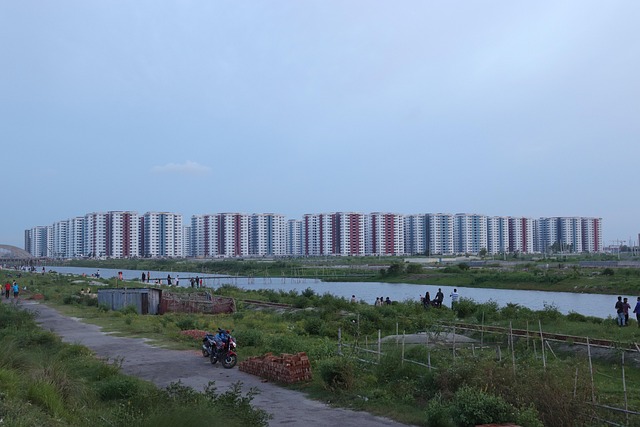
The Story of Sheikh Hasina: Her Role in Bangladesh’s Growth and the Challenges She Faces
Early Life and Background
Sheikh Hasina was born on September 28, 1947, in Tungipara, a small village in Gopalganj District, East Pakistan (now Bangladesh). As the eldest daughter of Sheikh Mujibur Rahman, the founding father of Bangladesh, Hasina grew up in a politically charged environment. Her father’s leadership during the struggle for independence from Pakistan had a profound impact on her upbringing. She witnessed firsthand the political upheavals and aspirations of the Bengali people, which deeply influenced her future political career.
Education and Personal Life
Sheikh Hasina completed her schooling in Dhaka and then attended the University of Dhaka, where she earned a bachelor's degree in Bengali literature. She married M. A. Wazed Miah, a prominent nuclear scientist, in 1968. Their partnership was marked by a shared commitment to their country's progress. The couple has two children: Sajeeb Wazed Joy, an influential figure in Bangladesh’s ICT sector and a political advisor, and Saima Wazed Putul, who has made significant contributions to mental health advocacy.
Political Career and Leadership
Sheikh Hasina's political career began under tragic circumstances. After the assassination of her father and most of her family members on August 15, 1975, she became the leader of the Awami League, a role she assumed while in exile in India. Her leadership during these years was crucial in maintaining the party’s relevance and advocating for democratic values.
Returning to Bangladesh in 1981, Hasina faced a tumultuous political landscape marked by military rule and political instability. Despite these challenges, she led the Awami League to prominence and became the Prime Minister of Bangladesh in 1996. Her tenure was characterized by efforts to restore democratic norms and tackle corruption.
Prime Ministerial Tenures
Sheikh Hasina has served as Prime Minister of Bangladesh on multiple occasions. Her leadership from 1996 to 2001 and again from 2009 to the present has been marked by several key achievements:
-
Economic Growth and Development: Under Hasina’s leadership, Bangladesh has seen remarkable economic progress. According to the Britannica, Bangladesh has transformed into one of the fastest-growing economies globally, with a focus on industrial growth and infrastructure development. Her government has pursued ambitious projects like the Padma Bridge, which is expected to significantly enhance connectivity and economic activity in the southern regions of the country.
-
Social Progress: Hasina's government has been notable for its emphasis on social development. Her policies have led to improvements in healthcare, education, and women’s rights. Initiatives such as the "Digital Bangladesh" program have aimed to integrate technology into daily life and governance, boosting literacy and technological access. Diplomat Magazine highlights her efforts in advancing women’s participation in the workforce and reducing poverty through targeted social programs.
-
Infrastructural Development: Hasina's administration has invested heavily in infrastructure, including the construction of the Padma Bridge, which is one of the largest infrastructure projects in Bangladesh’s history. The development of Dhaka's metro rail and improvements in power generation and telecommunications have also been pivotal in modernizing the country’s infrastructure.
Humanitarian Efforts
Sheikh Hasina's response to the Rohingya refugee crisis in 2017 was a significant aspect of her humanitarian work. Her decision to open the borders to hundreds of thousands of refugees fleeing violence in Myanmar earned her international acclaim as the "Mother of Humanity." Despite the enormous strain on Bangladesh’s resources, her government has worked to provide essential aid and advocate for the rights of the Rohingya people on the global stage (Al Jazeera).
Criticism and Controversies
Despite her achievements, Sheikh Hasina’s tenure has faced significant criticism. Concerns about authoritarianism have been raised by critics who argue that her government has curtailed press freedom and suppressed political dissent. Accusations of electoral manipulation and human rights violations have also been prominent, with allegations of extrajudicial killings and enforced disappearances (AP News).
Critics have also pointed to issues of corruption and nepotism. While her administration has implemented numerous development programs, these have sometimes been overshadowed by allegations of mismanagement and misuse of power (Al Jazeera).
Present and Future Challenges
Looking forward, Sheikh Hasina faces several pressing challenges. The ongoing Rohingya crisis continues to strain resources and diplomatic relations, requiring a sustainable resolution. Additionally, Bangladesh is grappling with the effects of climate change, including flooding and rising sea levels, which threaten its economic progress and development (ABC News).
Ensuring the integrity of democratic processes remains a critical issue. There are calls for electoral reforms to address concerns about fairness and transparency in future elections. Balancing rapid economic development with social equity and environmental sustainability will also be crucial for maintaining long-term stability and growth.
Legacy
Sheikh Hasina’s legacy is marked by her resilience and transformative leadership. Her tenure has seen significant advancements in economic development, social progress, and infrastructure. However, her administration’s approach to governance and human rights has generated debate. Despite the controversies, Hasina's impact on Bangladesh is undeniable, and her leadership has shaped the nation's trajectory towards modernization and development. Her future will likely be defined by how she addresses ongoing challenges and the enduring quest for a balanced and inclusive approach to governance.
More from this author






